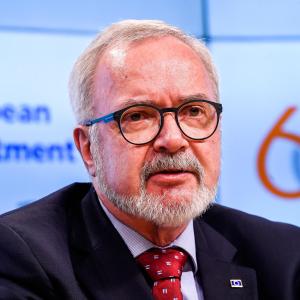To remain credible in Africa, Europe needs to forge ahead with its renewable energy transition
The European Union has ambitious goals for the green transformation of its economy. The 27 Member States aim to become climate neutral by 2050, starting with a 55% reduction in greenhouse gas emissions by 2030 compared to 1990 levels. The European Union also wants to help the neighbouring continent of Africa to achieve low-emission industrialisation with electricity from wind and sun.
Starting on 6 November, the UN Climate Change Conference in Sharm-el-Sheikh, Egypt, is expected to promote cooperation between the two continents. In fact, it is precisely because of the energy crisis that we finally need to close ranks with Africa on energy policy. However, we are not moving in the right direction.
With fossil fuels becoming scarce and expensive, Europe has been buying oil and liquefied gas worldwide — no matter what the cost. New terminals and pipelines are being built at record speed. For example, Germany is offering to help Senegal develop new gas fields — if the gas then flows to Europe.
Europe’s top priority is to quickly replace the shortfalls in Russian gas supplies ensure energy security in winter. But the political strength to simultaneously push ahead with the climate-friendly restructuring of the energy system is lacking. For wind farm tenders in Germany, for example, there are far too few applicants.
Sadly, it is precisely this short-term crisis management that is preventing a sustainable end to the energy crisis. We are seeing a return to old dependencies on fossil fuel imports, only at higher prices. Yet it is obvious that the faster renewables replace fossil fuels, the sooner we will achieve strategic autonomy, especially from Russia.
The accelerated expansion of wind and solar energy and the establishment of a genuine European grid interconnection would be the most sustainable way to curb gas prices. If the European Union is unsuccessful in doing so, it runs the risk of having to ensure sufficient supplies of coal and to fill gas storage facilities. Global warming would then get completely out of control.
In Africa, on the other hand, resource-rich states see Europe’s supply crisis as an opportunity to get support for the development of new gas fields. The African Union has formulated a clear message for the UN climate conference: Africa wants to build gas-fired power plants, and believes that without fossil energy, the continent will be unable to prosper.
In fact, the rich West talks a lot about renewable energies, while at the same time buying massive amounts of fossil fuels itself. Europe’s call for the green industrialisation of Africa also brings to mind colonial-era lecturing over what Africa should or should not do. In short: Europe has a credibility problem.
This harms not only Europeans and Africans, but the whole world. Last summer made it abundantly clear how much global warming already threatens human life: droughts and forest fires in Europe, floods in Asia and Latin America, devastating storms in the United States. Africa has long been suffering from the expansion of its deserts.
It is therefore all the more urgent that Europe, while taking the African view seriously, becomes a pioneer in the rapid expansion of renewable energies. Europe must prove that it is driving forward its green transformation while remaining economically prosperous.
If Europe wants to be climate neutral by 2050, it will need Africa as a partner. In many energy-intensive industries, coal and gas can only be replaced by green hydrogen. In the future, a large part of this will have to be produced in sun- and wind-rich Africa, as well as in Asia or Latin America, and exported to the European Union. As was the case in the Industrial Revolution, our success depends on driving innovation at record speed and deploying new technologies quickly.
Europe still has a lead in green technology over the United States, South Korea and China. We need to build on this lead. Europe’s green investment offensive will cost a lot of money: according to the European Commission, an additional €350 billion a year until 2030. By using financial instruments that combine state guarantees with long-term loans from development banks and money from private investors, considerable funds could be made available for investment. The European Investment Bank stands ready to mobilise €1 trillion for climate action in the current decade.
Europe will only be able to convince Africa of renewable energies if politicians focus more on wind farms, not just new liquefied gas terminals. Solar panels on our roofs should also become the new norm.
Africa is right that prosperity will only be achieved with cheap energy. However, even before the energy crisis, the most cost-efficient way to produce electricity was from solar and wind power.
This article was first published in Handelsblatt and Tagesspiegel in Germany on 3 November 2022.
